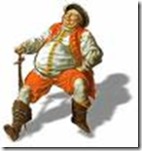Will Harry die? Harry Potter & The Philosophers' Predictions: Part 2
Is Harry destined for the graveyard or wedding bells ? |  |
In article 1 of this short series on "Harry Potter and the Philosophers Predictions", published in the week leading up to book 's arrival, we asked whether Snape is really evil. Much disputed in fandom (where people argue in equal measure for Snape being evil, Dumbledore's man or his own man), our 3 philosophical sages agree that Snape is Dumbledore's man and will be redeemed. Which you might think is good news for Harry. But can he really survive in book 7? After all, Dumbledore seriously injured himself just retrieving one horcrux, and Harry has to destroy four- without Dumbledore. And J.K. Rowling famously challenged Paxman's assumption that there would be a tale to tell of Harry the adult with these chilling words How do you know he'll still be alive?
Let's find out what our own three philosophical sages think.
Will Harry die in book 7?
 | Harry probably lives and flourishes |
Harry's death would end the series with a malevolent feel. Moreover, I think it would be in sharp contrast to almost everything in the series. This series is fundamentally a story about moral development; it is a story about Harry becoming a responsible and mature adult. His death is not the logic progression here. The logical end is his independence and the flowering of his power. Harry's development towards independence has been a central theme: from escaping the Dursleys to losing Sirius and now Dumbledore. I think we will see Harry take full control of himself and his powers and take his place in the adult world.
JKR has left it so that she can really do anything. There are 700 some odd pages left and a lot can be revealed that can up-end the best predications. From a fan point of view as well as philosophical/artistic point of view, I don't want to see Harry die. I say personally because I like Harry and I like happier endings. I say philosophically because I don't think killing the hero of the story is consistent with the kind of story of moral development and growth that JKR has been telling. I say artistically because the ultimate point of art is to uplift our souls, provide us with strength, and give us insight into our selves and to our lives. I don't see how Harry's death would serve those ends.
But if Harry must die, I don't want him to die in some grand sacrificial manner that casts him as some kind of Christ-like figure. Such an ending would be personally unsatisfying, but also against the grain of the whole series. The imagery and symbols have largely been drawn from classical and pre-Christian culture and so pasting a specifically Christian symbol on to it at the end would be incongruous.
Ultimately, however JKR close the series, the path she takes us on to that end will be more important than how it ends. Whether Harry lives or dies, whether Snape is evil or not, what will matter is if these last 700 pages tell the story in the way that makes it so when the end comes it is what we will need to see.
 | Harry probably lives - but ... |
I'd be very surprised if we were to lose Harry in the last book. But I can understand the viewpoint of those who think we will, because going out in a self sacrificial and successful effort to save the lives of his friends would be a fitting culmination of his moral development. And Rowling has some Christian "power in the blood" passages related to the self sacrifice of Harry's mother and dad, and some "power of love" passages that could be taken to foreshadow such an end.
Ed Kern |  | Harry the phoenix will accept death but will probably not literally be killed off. |
I try to make the case in the last chapter of my book, The Wisdom of Harry Potter, that Rowling has structured Harry's adventures as a very traditional hero's quest, which, among other things, employs alchemical symbolism to chart Harry's moral growth and to cast him, at least in part, as a metaphorical phoenix. I think this works pretty well with the Stoic themes I've found in the series. Because of this alchemical symbolism, and because of the way Voldemort's "sin" has been characterized, I'm pretty sure that Rowling will have Harry accept death - as he already did at the end of book 5, when Voldemort possessed Harry and dared Dumbledore to kill him. I think that this is also in line with other Stoic "suicides" occasioned by the demands of reason--at least from a Stoic perspective. I'm not alone in fandom in thinking that Dumbledore himself arranged his own death at the end of book 6 in the service of a greater good. He really is presented as a kind of Stoic "sage" guiding Harry's own development. Rowling has also had him make the claim, several times, that there really are worst things than death. And I really do think that the Harry Potter series is really more about death and the need to accept it than is usually acknowledged in critical commentary.
Within alchemy, the completion of the "work" results in the "death" of the alchemist before his "rebirth." If Rowling follows the path that she has already charted, Harry will, thus, have to "die." But he will do so as a phoenix, a reconciler of opposites and a bringer of life out of destruction.
Now, for what I might call meta-literary reasons, I don't think that Rowling will literally kill off Harry. Despite her protestations, she really is writing children's literature, and if she kills off her hero, I think that she'll turn off her audience. She'll also spoil the series for future readers, who won't invest the time in a lengthy story with a tragic ending, as well as for her current readers, who won't return to the stories again and again, as they've been doing now for some time.
So it looks like Harry will probably survive. But we know that more than two characters will die? Who's for the chop? Not Ron and Hermione surely? What about Luna? Nevile? Hagrid? Find out what our philosophers think in the next article, published very soon ...
Labels: harry potter, philosophy










